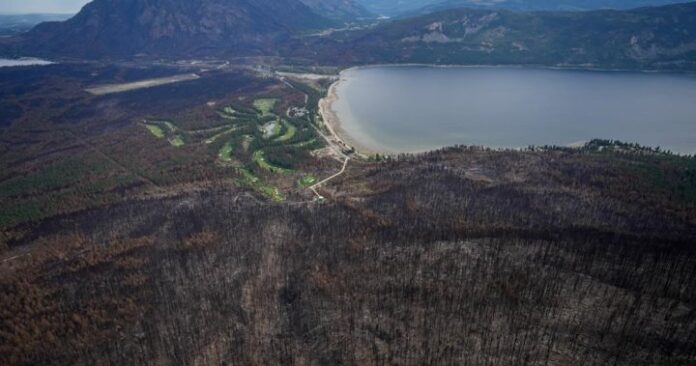“British Columbia is facing a dilemma when it comes to regulating wild mushroom picking, as tensions rise between Indigenous communities and foragers. The Skwlax te Secwepemculecw First Nation has raised concerns about the impact of mushroom pickers on their land, particularly in areas devastated by wildfires. This conflict highlights the need for careful consideration and collaboration to protect both the environment and the interests of all parties involved.
Rising Tensions and Environmental Concerns
Chief James Tomma of the Skwlax te Secwepemculecw First Nation expressed his concerns about the damage caused by foragers, including the destruction of trees and wildlife. The influx of mushroom pickers following wildfires poses a threat to the fragile ecosystem of the affected areas. As morel mushrooms thrive on freshly burned land, the potential for conflicts over foraging rights is on the rise.
BC’s Response and the Need for Regulation
The British Columbia Ministry of Forests has acknowledged the situation and stated that they are monitoring the activities of mushroom pickers. While there is currently no licensing requirement for foraging in the province, the need for potential regulation is being considered. Experts suggest that as wildfires become more frequent and intense, regulating mushroom picking may be necessary to prevent further damage to the environment.
Looking Towards the Future
The increasing risk of wildfires, exacerbated by climate change, poses a challenge for both Indigenous communities and foragers. Chief Tomma emphasized the importance of establishing a collaborative approach to ensure the safety of both the land and the individuals involved. As discussions continue, finding a balance between conservation and economic interests will be crucial in addressing this complex issue.
In conclusion, the conflict over wild mushroom picking in British Columbia highlights the need for thoughtful regulation and cooperation between different stakeholders. By considering the environmental impact, respecting Indigenous territories, and promoting sustainable practices, a harmonious relationship between foragers and communities can be achieved. It is crucial to prioritize the protection of the land and its resources for future generations to come.”
Reference















